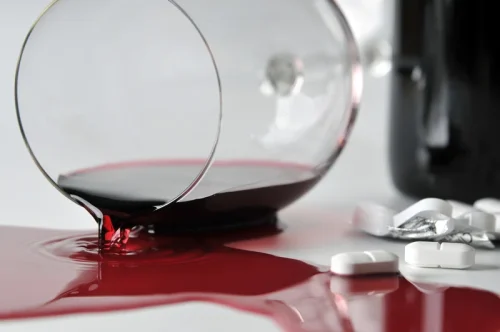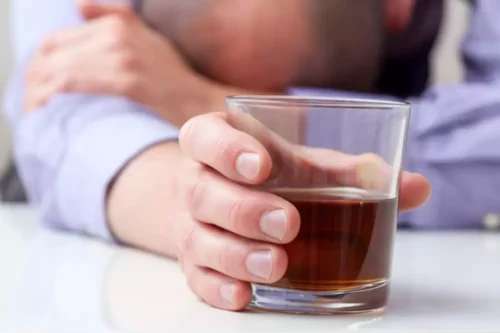
Explore the profound effects of drug use during pregnancy, from fetal impact to long-term consequences. Keep a physical copy of this contact list to hand, relapse triggers list perhaps in your wallet or by your phone charger, plus a digital version on your phone for when you’re away from home. Sobriety support apps often have a contacts section for storing and organising your network. But if you embrace an identity that aligns with your goals—like “I’m someone who values health and growth”—you’ll take actions that reflect this identity.

Recognizing Personal Triggers
Understanding that relapse is part of many recovery journeys helps in reframing the experience. Rather than a definitive failure, it’s an opportunity to reassess and strengthen one’s recovery plan, ensuring that emotional and psychological triggers are actively addressed moving forward. By utilizing these strategies, individuals in recovery can build a proactive framework to address cravings, aiding their journey towards lasting sobriety. One effective strategy is to engage in activities that promote emotional well-being, such as exercise, meditation, or mindfulness practices.
What to do when you experience stress
COVID-19 dramatically shifted individual’s mental health and well-being for the worse. Seeking forgiveness in recovery is crucial for a recovering addict to maintain long-term sobriety. According to the World Health Organization, anxiety impacts over 300 million people worldwide.
Westwind Recovery® Can Help You Avoid Relapse in the New Year
A range of clinical, biological, and neural factors, including depressive symptoms, stress levels, and drug cravings, have been identified as predictors of future relapse risk. Addiction recovery is a complex process influenced by various factors that can predict the likelihood of relapse. Understanding these factors is essential for developing effective recovery strategies. Discover the four main triggers for relapse in recovery and learn how to strengthen your journey to sobriety.

What are relapse triggers in psychology?
Discover my story about Christmas party relapse and find hope during the holidays and recovery journey. Explore inpatient vs. outpatient addiction treatment to find the best path toward recovery for you or a loved one. Discover tips for developing emotional intelligence in recovery for lasting resilience and emotional well-being. Discover why alcohol gives you night sweats and learn effective ways to manage and prevent them. Discover Adderall side effects, from common to severe, and learn about risks, treatment, and long-term impacts. Discover the risks of drinking and pregnancy, guidelines, and support for a healthy journey for you and your baby.
- Without the proper structure and routine, a person is more likely to start thinking about using again.
- Through CBT, individuals enhance their emotional intelligence, which significantly contributes to effective emotional regulation and long-lasting recovery.
- With the right medical support, you can take back control of your cravings and build long-term resilience.
- Support systems play a pivotal role in recovery, providing a safety net during vulnerable moments.
- Addressing it helps to fortify an individual against the challenges that can lead to relapse.
Recovery is hard work and drug use feels easy, and this can make people feel like their efforts haven’t been worth it. Therapy can help people overcome the cognitive challenge of acknowledging the difficulty of recovery but realizing that sustaining an addiction is far harder. Negative emotions like sadness, guilt or anger are often core reasons why people begin abusing substances in the first place. When these emotions crop up again during recovery, the brain drug addiction treatment remembers dealing with them using drugs or alcohol and prompts cravings. These triggers can vary from person to person, but some common examples include stress, boredom, loneliness, and feeling overwhelmed. Other triggers may include seeing people who use drugs, being in certain places, or even certain smells or sounds.
- Triggers can emerge unexpectedly and have the power to cause intense cravings, challenging the progress an individual has made.
- They provide tools for emotional regulation, stress management, and coping with triggers.
- It involves negative emotions such as anger, moodiness, and anxious feelings, as well as denial of the potential for future relapse.
- Staying proactive by finding new, enjoyable activities and avoiding overwhelming feelings is an effective way to combat boredom.
People who participated in your addictive behavior are potential triggers for a relapse, regardless of whether or not they are still drinking, smoking, or using drugs. Likewise, certain places that remind you of your addiction may be triggering for you. Even some family members could be a trigger, especially if they make you feel more childlike and vulnerable.
- Explore how drug use could lead to hair loss, its reversibility, and treatment options for recovery.
- Welcoming such sources of encouragement into one’s routine can profoundly diminish the potential for regression into past behaviours and serve to render the process of recovery more manageable.
- The more individuals understand and address their triggers, the better equipped they will be to maintain lasting sobriety.
- Surrounding yourself with individuals who understand your journey and can provide encouragement, accountability, and practical assistance can make a significant difference in your recovery.
- Developing self-awareness, honing coping skills, and utilizing support systems are effective strategies for managing relapse triggers after exploring relapse and its coping strategies.
- Explore the riveting history of addiction treatment & rehab, from ancient methods to modern advancements.
One of the top triggers for relapse is cravings and managing cravings is a fundamental skill in maintaining recovery. Developing awareness of personal triggers that lead to cravings is the first step. Utilizing coping strategies, such as mindfulness, deep breathing, or engaging in a distracting activity, can help redirect thoughts away from cravings. Building a robust support system provides individuals with encouragement and assistance during challenging moments. Stress can have a significant impact on emotional relapse, as it often induces negative emotions and behaviors that contribute to the relapse process. For individuals who have previously used drugs or alcohol to cope with stress, encountering similar stressors can increase the risk of relapse.

Recognizing the Signs
Various treatment options are available for individuals struggling with emotional relapse, including therapy, medication, and holistic approaches. Incorporating mindfulness practices and self-reflection into the recovery process can significantly contribute to a more successful and fulfilling recovery journey, ultimately preventing emotional relapse. Recognizing personal emotional triggers and implementing effective coping mechanisms can not only help avoid emotional relapse but also contribute to a healthier and more fulfilling recovery journey.
Our medical staff includes an ASAM certified addiction psychiatrist & an addiction-trained primary care physician. Addiction relapses are similar in that the individual needs to seek treatment to get back on track. To overcome withdrawal symptoms, most people need some form of detoxification or withdrawal management service. A long-term, severe relapse might require residential treatment, while people with prior experience in a treatment program may do well with outpatient therapy. Whatever the course of treatment, it will involve the person identifying the reasons they relapse and learning what steps to take to prevent it in the future.

